When it comes to standing out online, it’s not enough to just write a few blog posts and hope audiences find them.
Search engines like Google now look for websites that are experts on specific topics, not just ones that sprinkle in popular keywords. This is called topical authority—it’s about becoming a trusted source of information on a particular subject.
Topical authority means covering your topic thoroughly and consistently so that both search engines and audiences see you as an expert. This helps you rank higher in search results, drive more traffic to your site, and build trust with your audience.
In this post, we’ll explain what topical authority is, why it matters, and how you can build it to improve your site’s performance and grow your online presence.
So, without any further ado, let’s get started.

Table Of Contents
1 What is Topical Authority?
Topical authority refers to a website’s ability to establish itself as a credible and comprehensive source of information on a specific subject.
Instead of simply targeting individual keywords, topical authority focuses on building expertise by creating in-depth content that thoroughly covers various aspects of a core topic.
Search engines like Google value websites that demonstrate deep knowledge across a wide range of related subtopics because it shows that the site is an expert in that particular area.
By consistently producing high-quality, interconnected content on a specific subject, you can build a reputation as a go-to resource for both audiences and search engines.
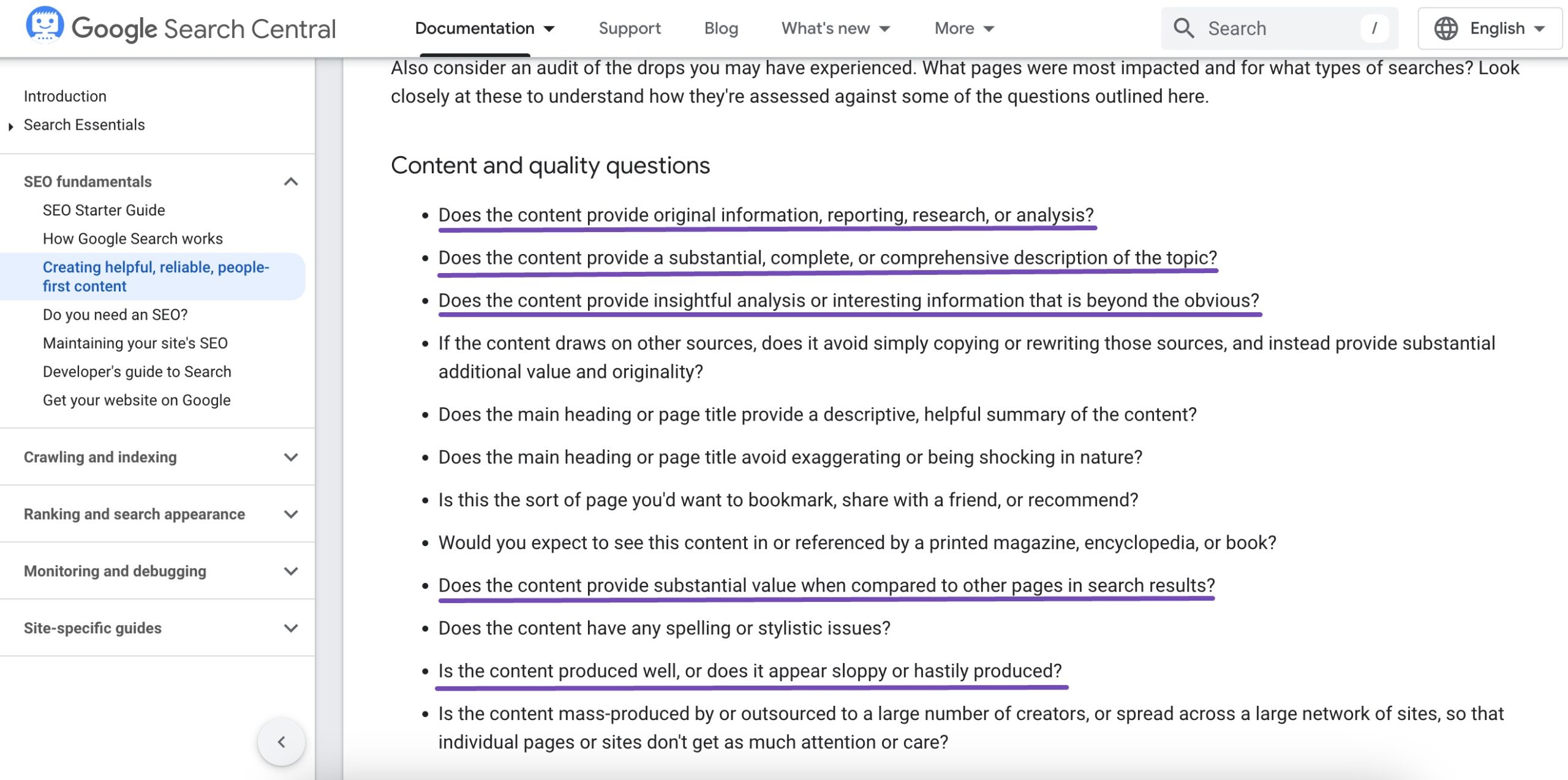
For instance, imagine you run a website focused on gardening. Instead of just writing about how to grow tomatoes, you can also cover related topics like the best soil for vegetables, how to start a garden in small spaces, organic pest control, and seasonal planting guides.
2 Why is Topical Authority Important for SEO?
Topical authority is essential for SEO because it helps websites build credibility and trust with both search engines and audiences.
Search engines like Google prioritize content that demonstrates experience, expertise, authority, and trustworthiness (E-E-A-T).
When a website covers a topic comprehensively, offering a wide range of content that addresses various related subtopics, search engines are more likely to recognize that site as an expert in that area.
This can lead to higher rankings in search results, increased organic traffic, and improved visibility for multiple relevant keywords.
Additionally, topical authority aligns with user intent. When visitors find thorough, well-structured content that answers their questions, they’re more likely to stay on the site, engage with the content, and return for more information.
This enhances user experience, reduces bounce rates, and signals to search engines that the content is valuable, further boosting SEO performance.
3 How to Build Topical Authority
Let us now discuss the ways to build topical authority.
3.1 Perform Topic-Based Keyword Research
Topic-based keyword research focuses on identifying and organizing keywords around a central theme rather than targeting individual, isolated terms.
This approach ensures that your content comprehensively covers various subtopics, helping establish your site as an expert on the subject.
The goal is to find not only the main keywords but also related terms that allow you to create a network of interconnected content that fully addresses a topic.
To start, you need to first identify your core topic, such as digital marketing. Then, instead of just targeting the broad keyword digital marketing, you can break it down into subtopics like SEO strategies, social media marketing, content marketing, email marketing, etc.
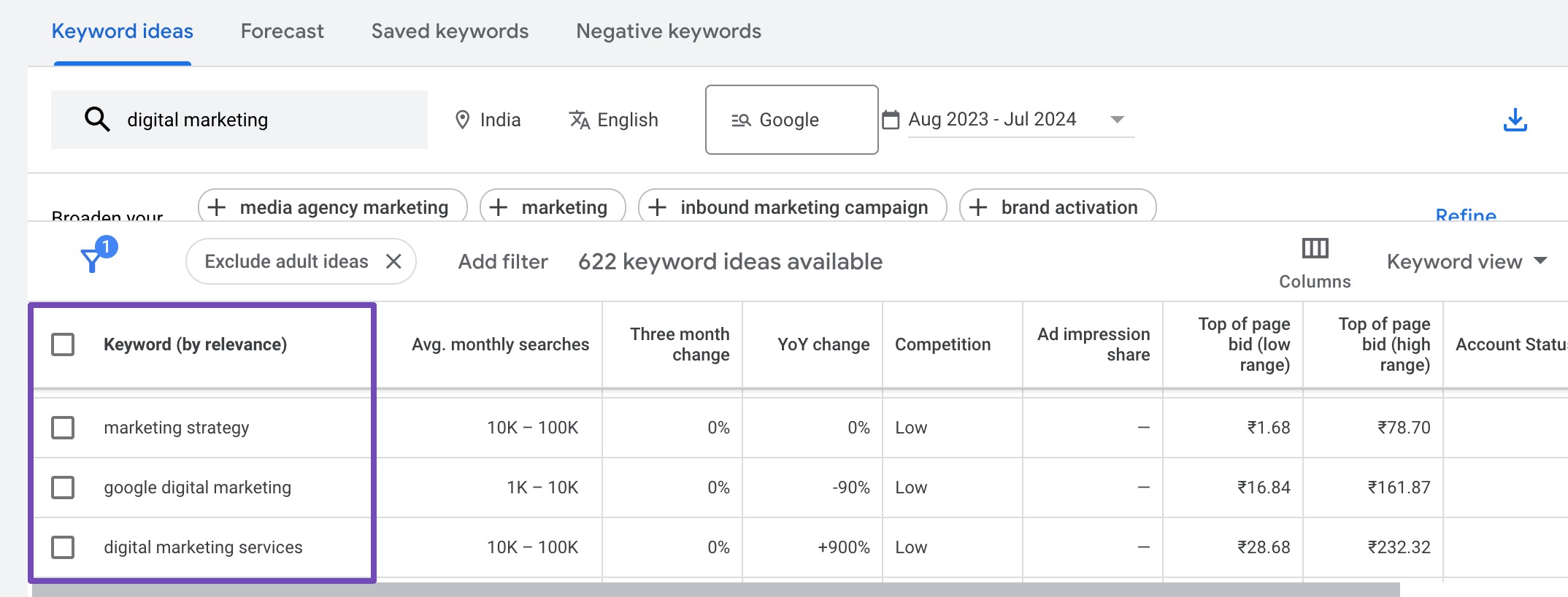
Within each subtopic, you can perform in-depth keyword research to find relevant long-tail keywords. For instance, under SEO strategies, you can discover keywords like on-page SEO, technical SEO audit checklist, and SEO backlinks.
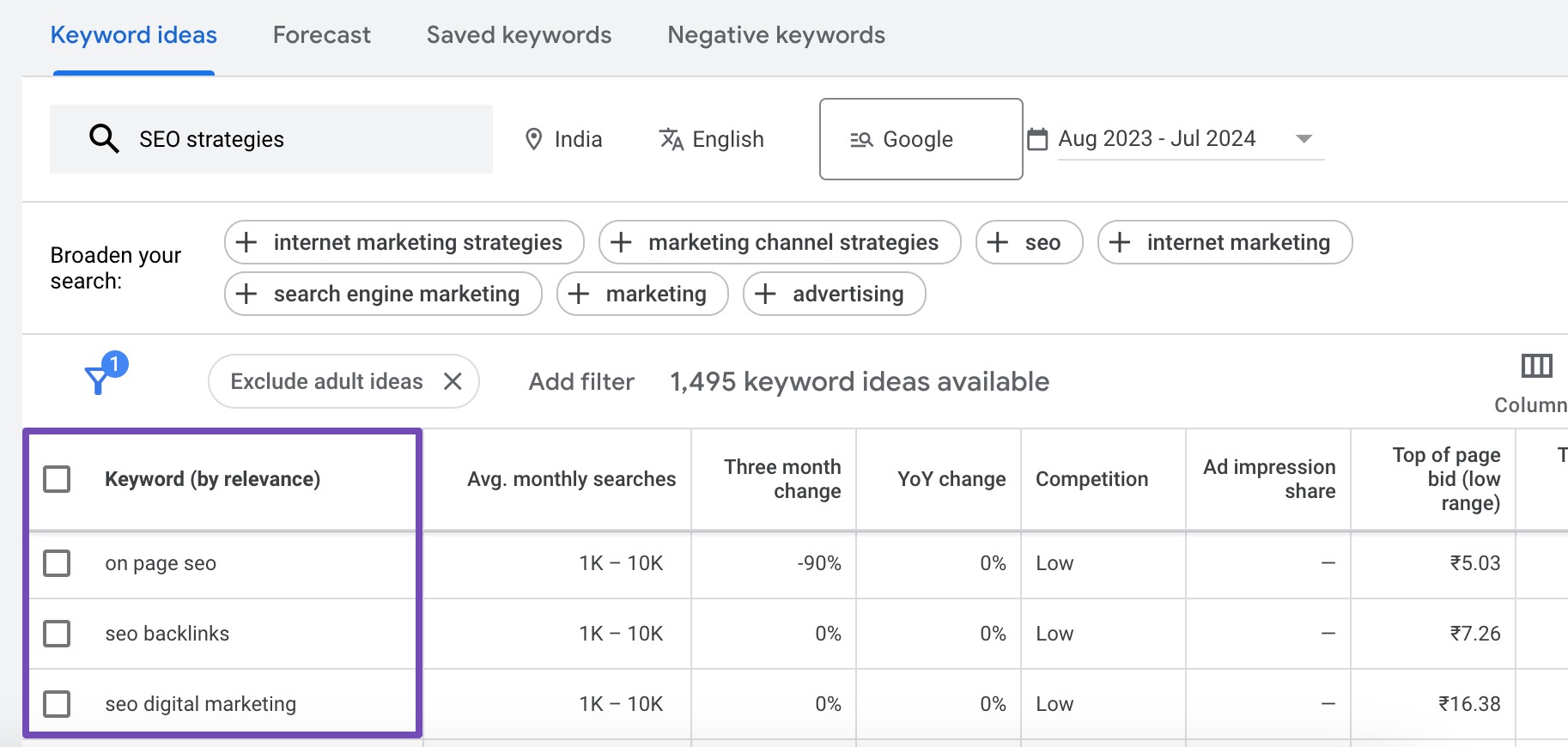
You can use keyword research tools like Ahrefs, Semrush, or Google Keyword Planner to expand each subtopic and find the related search terms.
This topic-based keyword research allows you to strategically plan content that not only ranks well for various related keywords but also establishes your site as an authoritative resource on the topic.
3.2 Create Topic Clusters
Building topical clusters is a strategy that involves creating pillar pages and supporting content that work together to cover a topic comprehensively.
A pillar page is a central, in-depth resource that provides a broad overview of a core topic, while cluster content consists of related articles that dive deeper into specific subtopics.
These pieces are linked together, forming a network of content that signals to search engines that your site is an authoritative source on the subject.
To effectively create pillar pages, you start by identifying a core topic that aligns with your niche.
For instance, if your website focuses on digital marketing, a pillar page can be titled Complete Guide to Digital Marketing. This page will cover various aspects of digital marketing at a high level, such as SEO, content marketing, social media strategies, email marketing, and paid advertising.
To designate a post as a Pillar Post for link building, navigate to the SEO meta box in Rank Math SEO. Simply edit your post, navigate to the General tab, and select the option labeled This post is Pillar Content to mark it accordingly.
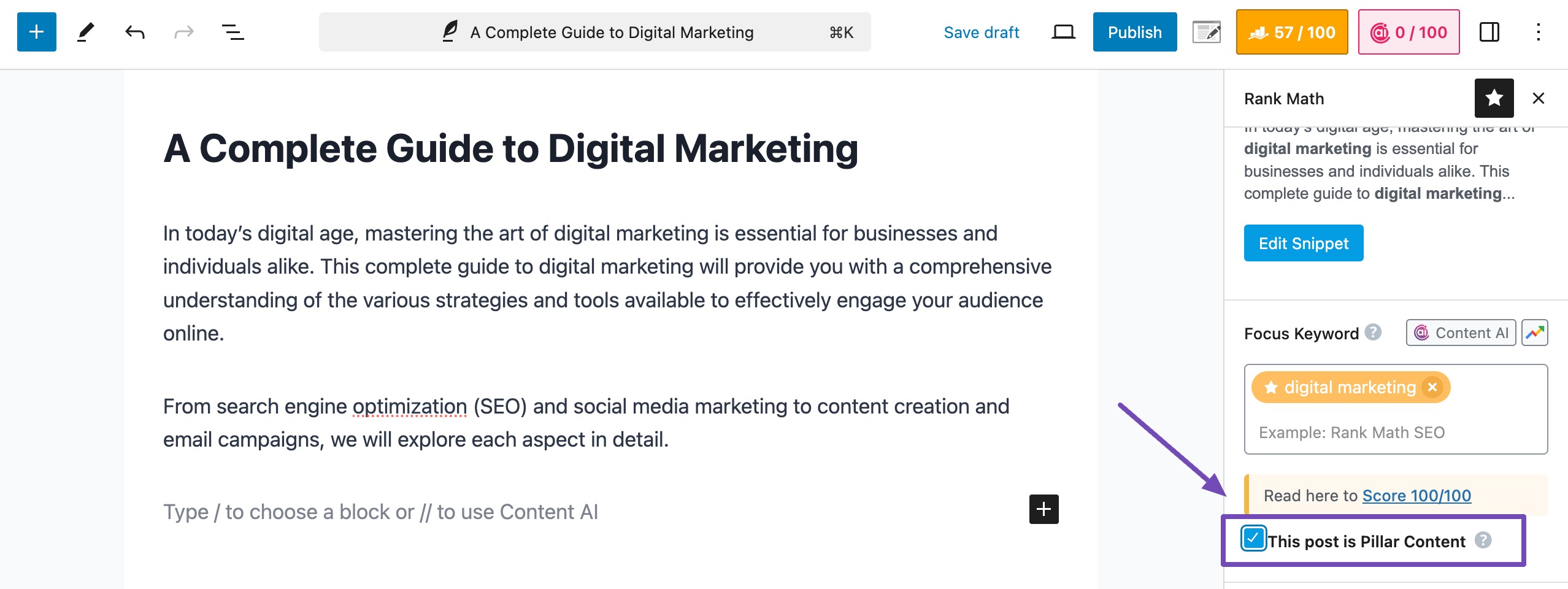
3.3 Create Authority Content
Now that you’ve completed your keyword research and mapped out your topic clusters, it’s time to start creating content.
The most common way to establish topical authority is to produce in-depth, comprehensive content. Begin with your main pillar content.
These pillar pages should cover each of your primary products, services, or the main areas where you want to build authority. The focus topics should be broad enough to allow for subcategories yet specific enough to ensure that searchers find the content relevant when they land on your page.
You can use Rank Math’s Content AI to create high-quality authority content.

And here’s something worth noting: With the help of AI, 47% of users are producing content faster, and 35% are shifting their focus from quantity to quality.
Once your pillar pages are in place, move on to writing supporting content.
Instead of discussing topics in general terms, dive deeper into specifics. These supporting pages should be highly targeted to match user intent, providing the opportunity to add more content depth. This is also where you’ll typically target long-tail keywords, which can help drive more focused traffic.
For every piece of content you create to build your topical authority, make sure to:
- Write high-quality content that aligns with your topic and aligns to what your audience wants to read.
- Keep E-E-A-T (Experience, Expertise, Authoritativeness, Trustworthiness) in mind.
- Cover as many relevant topics and subtopics as possible.
- Match search intent by creating content suited for specific queries (e.g., a how-to guide for how to X, or a list of benefits for benefits of X queries).
- Internally link to related content to strengthen your content network.
- Regularly update your content to keep it fresh and relevant over time.
This approach will help ensure that your content not only ranks well but also builds your site as an authoritative resource in your niche.
Moreover, authority content should be optimized for SEO to ensure it reaches a wider audience.
This includes using relevant keywords, structuring your content with headings and subheadings, and linking to both internal and external sources that enhance the value of your article.

By consistently creating this level of content across your site, you build topical authority, positioning your website as an authoritative source in your niche.
3.4 Build Relevant Links
Building relevant links is an essential step in establishing topical authority. It helps build your site’s credibility and visibility in search engines.
Relevant backlinks signal to search engines that your content is trustworthy and valuable, especially when those links come from authoritative websites within your industry.

The more high-quality backlinks you earn from relevant sources, the more likely search engines will recognize your site as an expert on the subject, which can improve your rankings.
To build these relevant links, start by creating content that is highly valuable and shareable, such as in-depth guides, original research, or case studies.
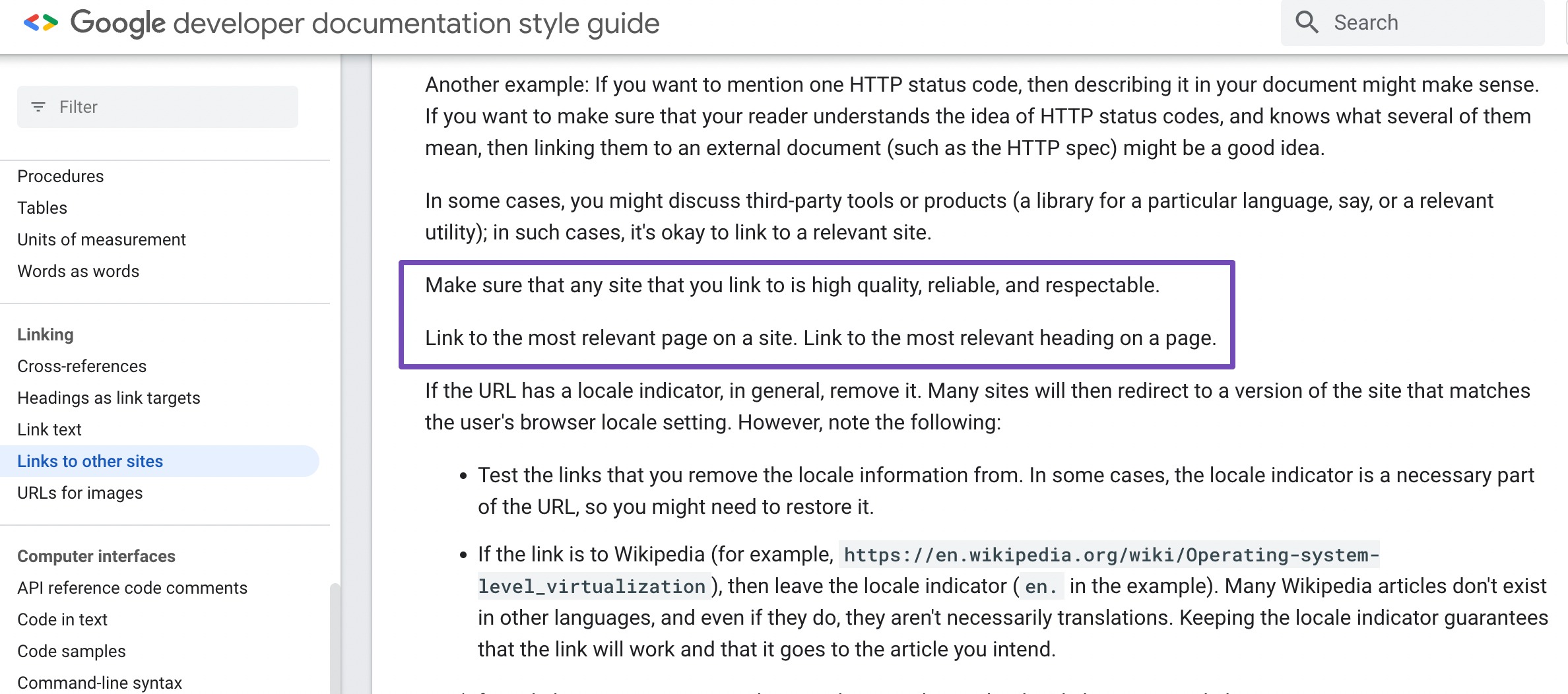
These types of content are more likely to attract natural backlinks from other websites referencing your work.
Rank Math SEO makes it extremely easy to find credible external links. To do so, add the topic in the Content AI Research feature and click on Research; the AI system will check to determine the relevant links you can add to your content.
You can find all the credible sources in the Links tab, as shown below.
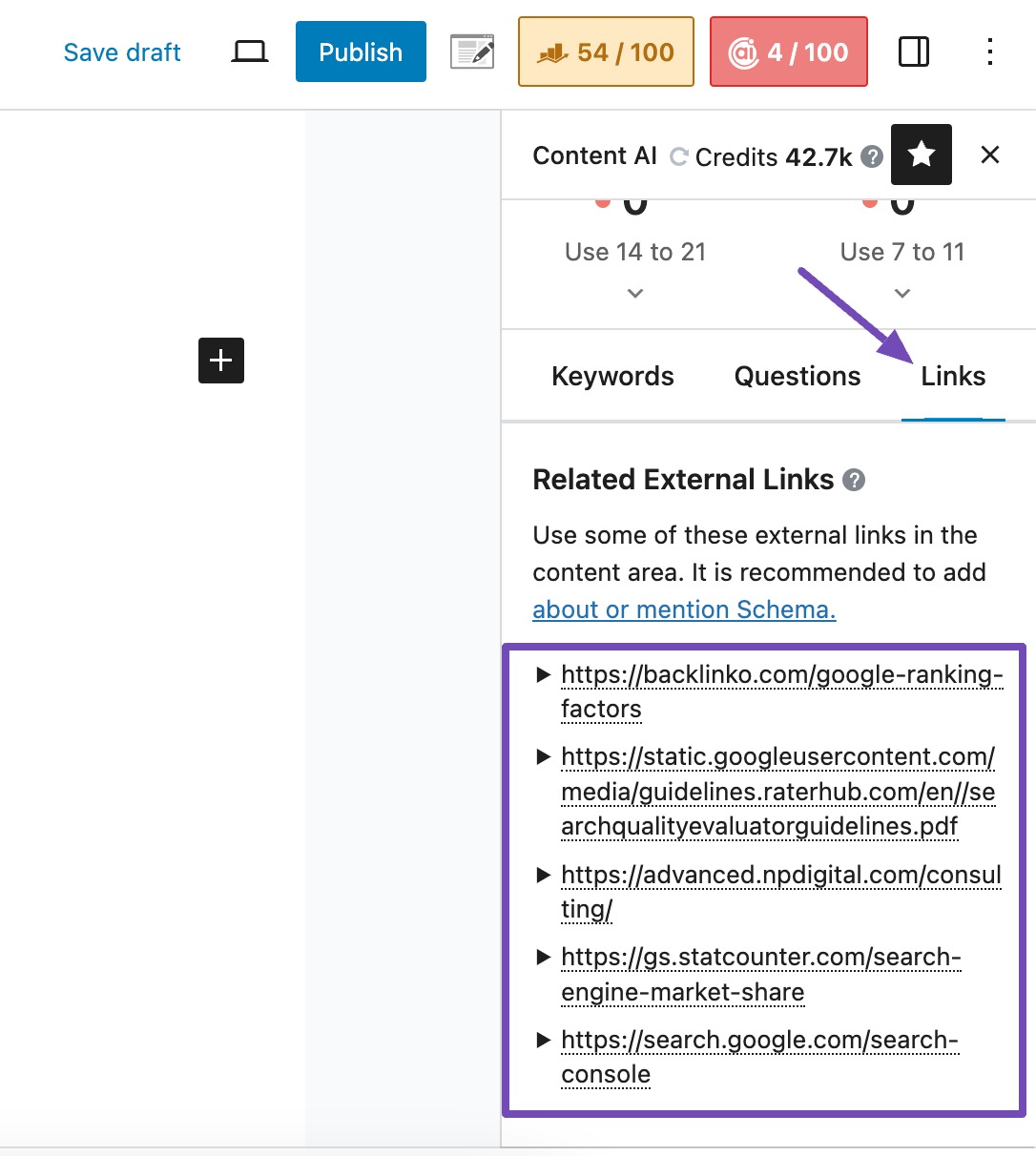
Make sure that any links you obtain are contextually relevant to your topic, as irrelevant or low-quality links can do more harm than good.
Another strategy is to use internal linking effectively.
By linking your pillar pages and supporting content to one another, you create a strong internal link structure that helps both search engines and audience navigate your site and recognize the depth of your content.
Relevant external and internal links, in combination, contribute to building your topical authority and positioning your website as a trusted resource in your field.
4 How to Measure Topical Authority
Measuring topical authority involves evaluating various metrics that indicate how well your content is performing in terms of coverage, depth, and search engine visibility.
One way to assess topical authority is to use the Traffic share by domains report in Ahrefs’ Keywords Explorer.
To begin, access the Matching terms report in Ahrefs and apply a filter for keywords with a minimum search volume of 10.
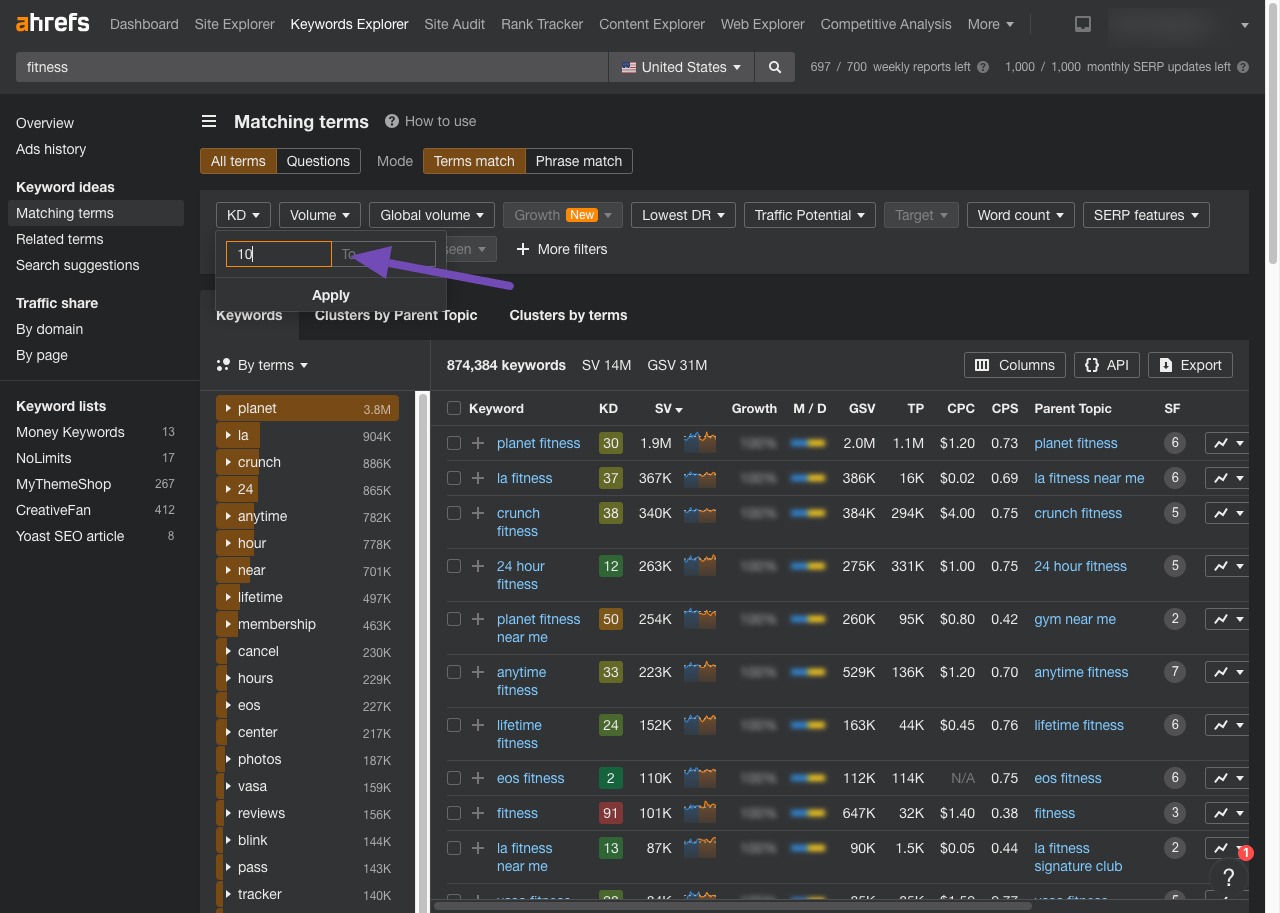
Once you have the filtered list, export all the keywords and then re-upload them into the Keywords Explorer tool.
After that, navigate to the Traffic share by domain section. The metric, known as traffic share, is your topical authority, indicating how much visibility your site has within a specific topic compared to competitors.
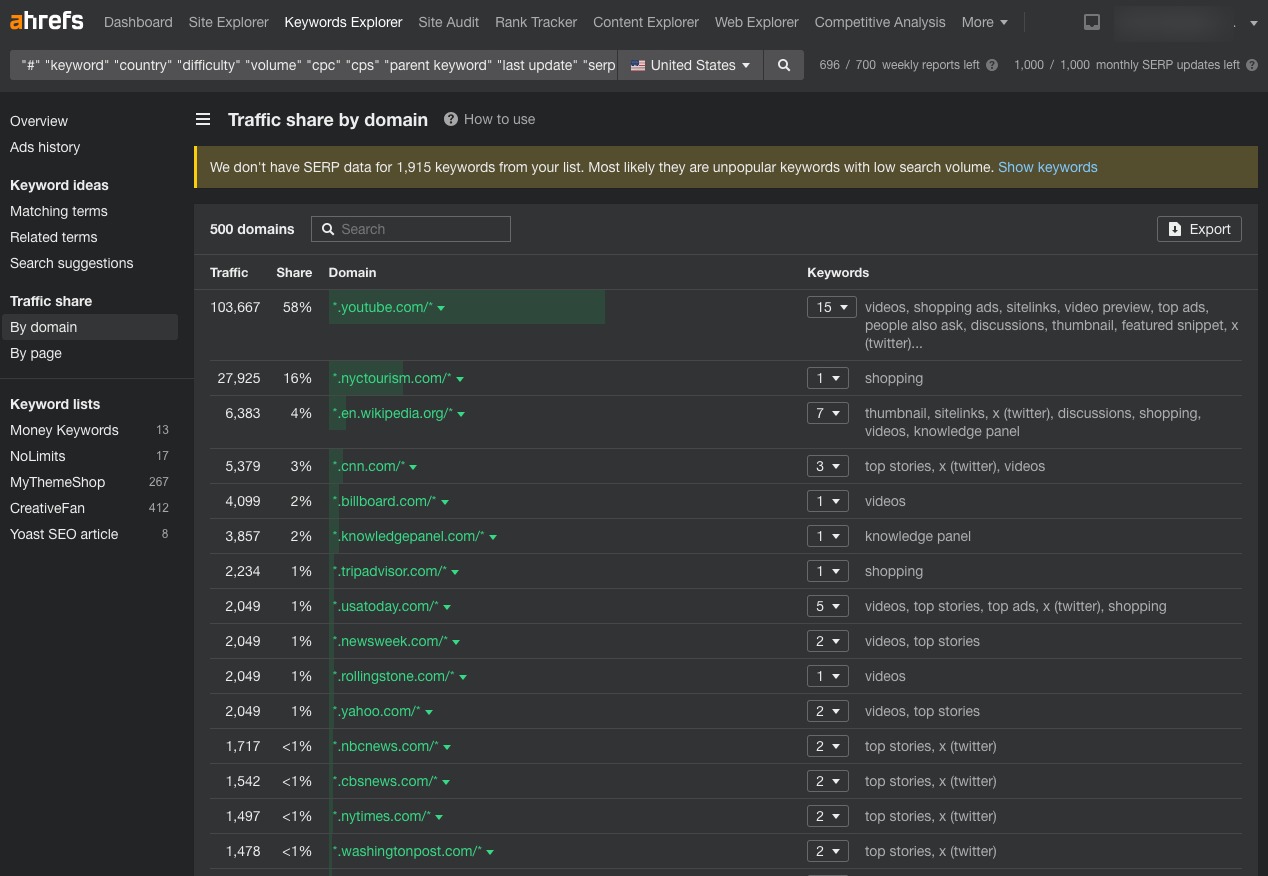
5 Frequently Asked Questions
What types of content are best for building topical authority?
High-quality content types include in-depth guides, comprehensive how-to articles, original research, case studies, and expert interviews. These formats provide valuable insights and are more likely to attract backlinks.
What is the difference between topical authority and domain authority?
Topical authority focuses on a website’s expertise and credibility on specific subjects, while domain authority measures the overall strength of a website’s domain based on factors like backlinks and site quality.
How do I identify my core topic for building topical authority?
Choose a core topic that aligns with your business goals and expertise. It should be broad enough to include various related subtopics but specific enough to attract a targeted audience.
What are cluster pages?
Cluster pages are supporting articles that delve into specific subtopics related to the main pillar page. They link back to the pillar page, creating a content network that strengthens topical authority.
What is the role of long-tail keywords in topical authority?
Long-tail keywords are specific phrases that target niche topics within your core subject. They help attract highly targeted traffic and allow you to address detailed aspects of your topic.
How do I determine the right subtopics for my cluster pages?
Identify subtopics based on common search queries, related keywords, and user interests. Use tools like Google Trends and keyword research platforms to make your choices.
How do I analyze my competitors’ topical authority?
Use competitive analysis tools to review your competitors’ content strategies, keyword rankings, and backlink profiles. Identify their strengths and weaknesses to help shape your own approach to building topical authority.
What are some common mistakes to avoid when building topical authority?
Avoid focusing too narrowly on a single keyword, neglecting content quality, failing to update outdated information, and ignoring user intent are some of the common mistakes to avoid when building topical authority.
6 Conclusion
Building topical authority is a powerful strategy that helps your website stand out as a trusted resource in your niche.
By creating well-structured pillar pages, supporting content, and a network of internal links, you can effectively demonstrate your expertise on a given topic.
This not only improves your search engine rankings but also attracts a more engaged audience to your site.
By committing to a long-term approach and consistently delivering valuable, high-quality content, you position yourself as a leader in your industry, ultimately driving growth and success for your website or business.
If you like this post, let us know by Tweeting @rankmathseo.
